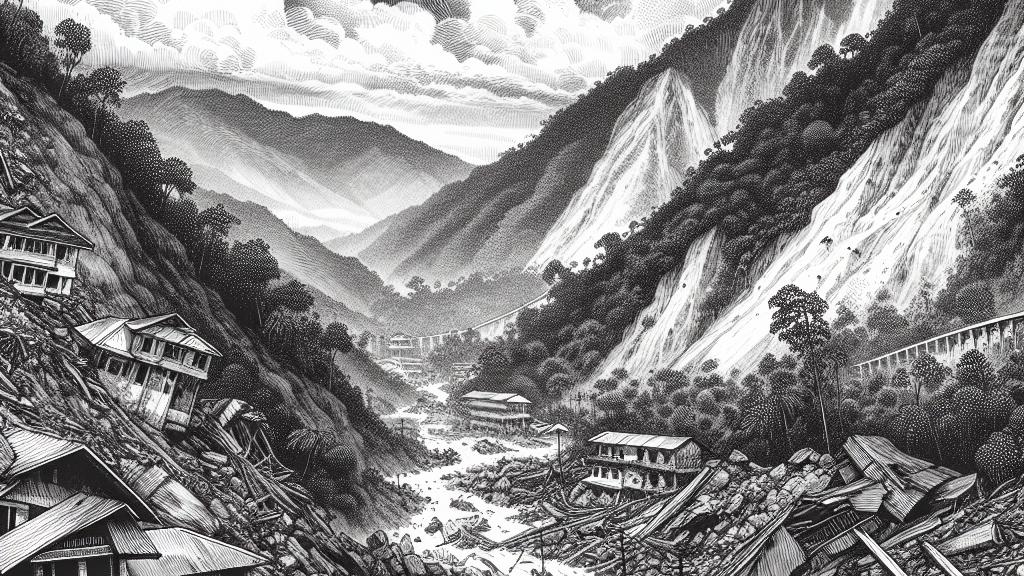Landslide Alarms: Kerala's Wake-Up Call in Climate Chaos!
Overview
- Kerala's Wayanad district recently faced devastating landslides, resulting in heavy casualties.
- Experts emphasize the urgent need for improved landslide hazard mapping and disaster preparedness.
- Climate change significantly escalates landslide risks, underscoring the urgency for effective solutions.

A Catastrophe in Kerala
In the early hours of July 30, 2024, Wayanad district in Kerala, India, was struck by a series of catastrophic landslides following incessant monsoon rains. At least 123 people lost their lives, and many more remain missing, feared trapped beneath unstable ground and debris. This area is known for its hilly terrain, making it susceptible to such natural disasters during the monsoon period. The impact of the landslides devastated entire communities, washing away homes, infrastructure, and livelihoods. Rescue operations have faced numerous obstacles, including ongoing adverse weather conditions and the destruction of key transport links. Such a significant loss of life and property serves as a sobering reminder of the region's vulnerability to climate-induced disasters.
The Need for Improved Hazard Mapping
The tragic events in Wayanad have sparked vital discussions among scientists and policymakers about the need for enhancing landslide hazard mapping methodologies. Existing maps, including landslide inventory and susceptibility maps, often rely on dated data and fail to accurately depict real-time risks associated with fluctuating climatic conditions. Experts suggest affording greater emphasis on dynamic hazard maps that incorporate up-to-date climate data, satellite imagery, and Geographic Information System (GIS) technology. Implementing these advanced tools would provide communities with critical insights into potential hazards, empowering them to develop effective planning and risk reduction strategies. Improved hazard mapping is essential for anticipating future disasters and enhancing preparedness in landslide-prone areas.
Climate Change's Role in the Crisis
The landslides in Kerala starkly illustrate the growing threats posed by climate change. Increasing global temperatures have been linked to alterations in seasonal weather patterns, leading to more intense rainfall and extended periods of storms—key factors in triggering landslides. As our climate continues to shift due to human-induced greenhouse gas emissions, regions like Kerala may experience even greater rainfall variability and extreme weather events. This reinforces the urgent need for adaptation measures, including sustainable land use and robust environmental protection policies, aimed at mitigating the risk of such disasters. Concerted efforts from governments, local communities, and global stakeholders are essential in rising to the challenge of climate resilience.
Community and Government Response
In the aftermath of the devastating landslides, the response from both the Kerala government and local communities has been both immediate and heartfelt. Hospitals quickly mobilized to treat injured individuals, while various relief camps were established to shelter the thousands displaced by the disaster. The Indian government has pledged substantial financial assistance to the victims' families and those affected by the landslides, reflecting a genuine commitment to providing aid during this crisis. Community members have actively engaged in recovery efforts, helping with search and rescue missions and supporting one another through this tragedy. This collective response emphasizes the critical importance of preparedness, local resilience, and the need for better infrastructure to withstand the impacts of future disasters.

Loading...